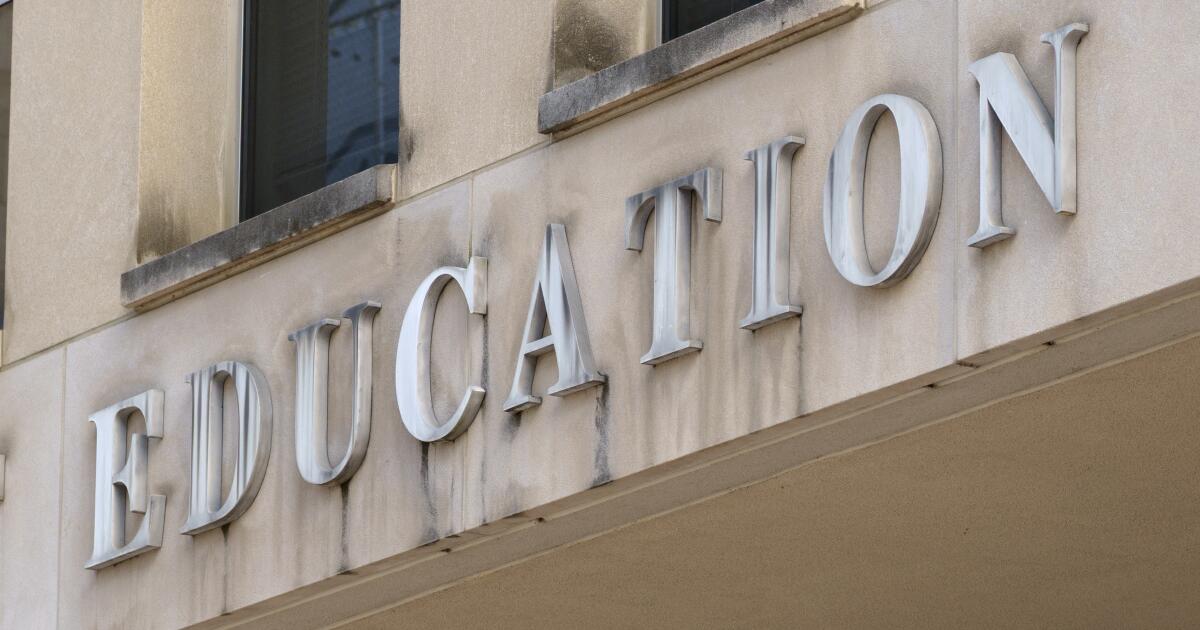The Trump administration’s approach to public education is under intense scrutiny as significant changes loom on the horizon. The administration plans to implement drastic cuts to federal education funding, particularly targeting programs focused on diversity, equity, and inclusion (DEI). This move comes after Education Secretary Linda McMahon announced the release of billions in funding for the upcoming school year, despite facing widespread protests from educators and parents nationwide.
Following a controversial decision to withhold funding announced in late June, the administration faced backlash from various stakeholders, including teachers, parents, and school superintendents. In a notable legal response, 24 states filed a lawsuit against the federal government for failing to honor previously appropriated education funding. This situation reflects the ongoing tension between the educational community and the administration’s policies.
Legal and Political Implications
The administration’s initiatives could have far-reaching consequences. Currently, nearly $30 billion in federal aid hangs in the balance, with proposed changes threatening to dismantle programs that have historically supported disadvantaged students. The potential shuttering of the Department of Education aligns with a key campaign promise made by Donald Trump, as approximately 2,000 Department of Education staff members have already been dismissed or resigned under pressure.
On July 14, 2023, the Supreme Court lifted an injunction against these firings, granting the administration a significant degree of control over the department’s future. Justice Sonia Sotomayor, joined by Justices Elena Kagan and Ketanji Brown Jackson, expressed deep concerns in a dissenting opinion, highlighting the “untold harm” that could result from these actions, particularly concerning civil rights and educational opportunities for vulnerable populations.
McMahon’s stated goal is to eliminate federal funding for school districts that do not demonstrate the removal of DEI initiatives, which the administration has labeled as “critical race theory and transgender insanity.” Critics argue that such a stance undermines decades of bipartisan efforts to close the achievement gap between marginalized students and their peers.
Impact on Education and Future Funding
The proposed changes threaten established funding mechanisms that support essential services such as smaller class sizes, after-school programs, and tutoring for disadvantaged students. Research indicates that programs under the Title 1 initiative have significantly improved performance among disadvantaged students, as seen in the National Assessment of Educational Progress (NAEP).
The ramifications extend to students with disabilities, as the commitment to provide a “free and appropriate education” could be jeopardized, with potentially devastating effects on those who rely on specialized educational support. By demanding proof of the elimination of DEI as a condition for funding, the administration is effectively prioritizing a narrow definition of educational success that excludes critical support systems for these students.
Moreover, the introduction of a nationwide school voucher program, as part of Trump’s One Big Beautiful Bill Act, could redirect substantial funds away from public schools. The program proposes a 100% tax deduction for donations made to organizations offering educational scholarships, with no cap on the funding. Estimates suggest this initiative could cost up to $50 billion annually, risking further erosion of public education.
Research indicates that voucher programs, such as those implemented in Louisiana, Washington D.C., and Indiana, have not yielded the promised improvements. In fact, studies reveal that students utilizing voucher systems often perform worse academically compared to their public school counterparts. Education policy expert Joshua Cowen notes that these programs have led to poorer outcomes than those experienced during the COVID-19 pandemic, highlighting the fundamental challenges inherent in addressing educational inequality through vouchers.
In response to the administration’s actions, defenders of public education are mobilizing. Twenty states have initiated legal challenges against the Department of Education’s demands concerning DEI programs. Massachusetts Attorney General Andrea Joy Campbell characterized the threats to withhold critical funding as unlawful and detrimental to students and families.
The legal battles ahead may take considerable time to resolve, potentially leaving lasting damage in their wake. As the administration seeks to navigate these challenges, it becomes increasingly crucial for Congress to advocate for public education and uphold longstanding legislative mandates. The future of educational equity hangs in the balance, and it remains to be seen whether Congress will act decisively to protect the interests of students across the nation.
The evolving landscape of U.S. education policy underscores the importance of continued advocacy for equitable access to quality education, particularly for the most vulnerable populations. As this situation develops, the implications for public education will undoubtedly resonate far beyond the halls of government.
